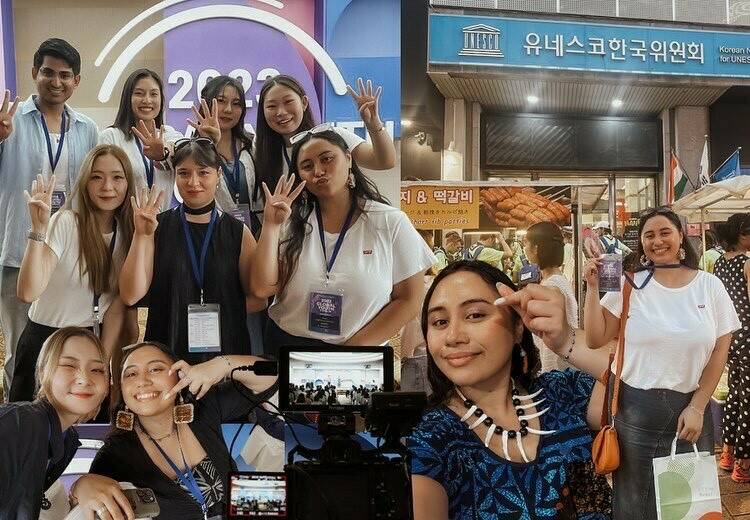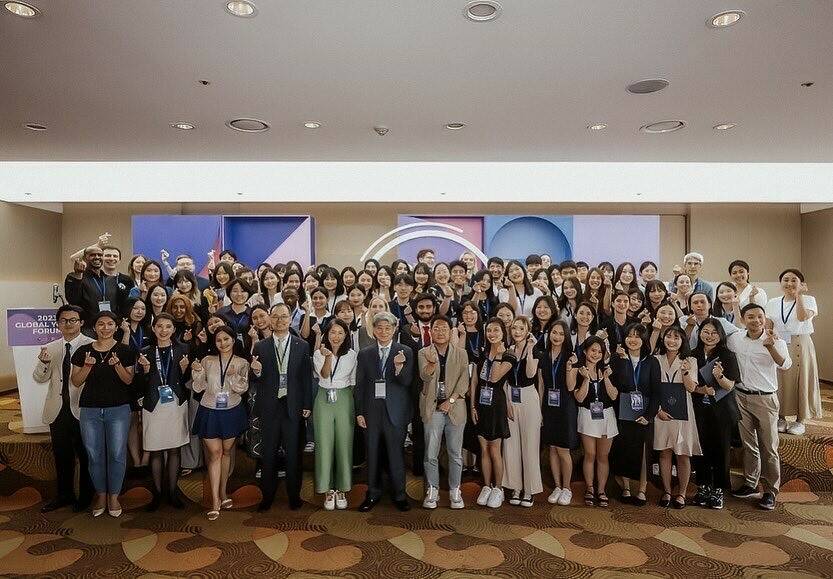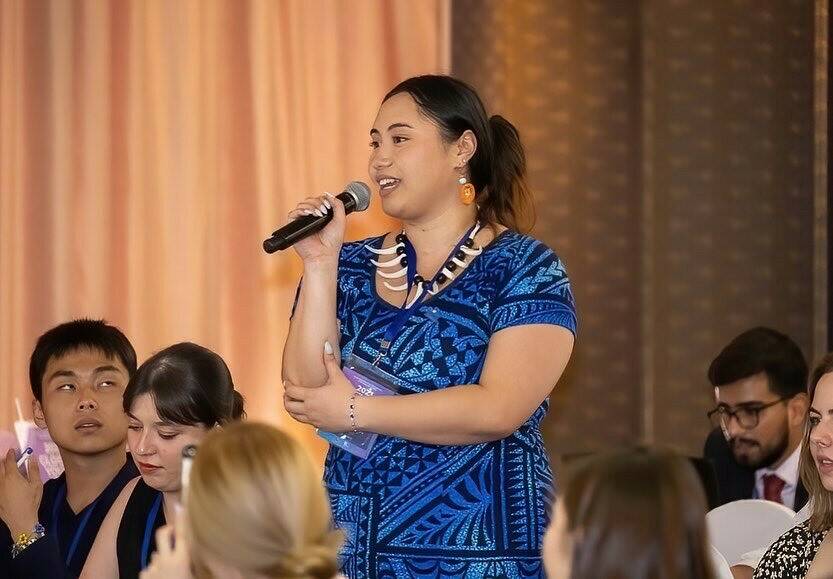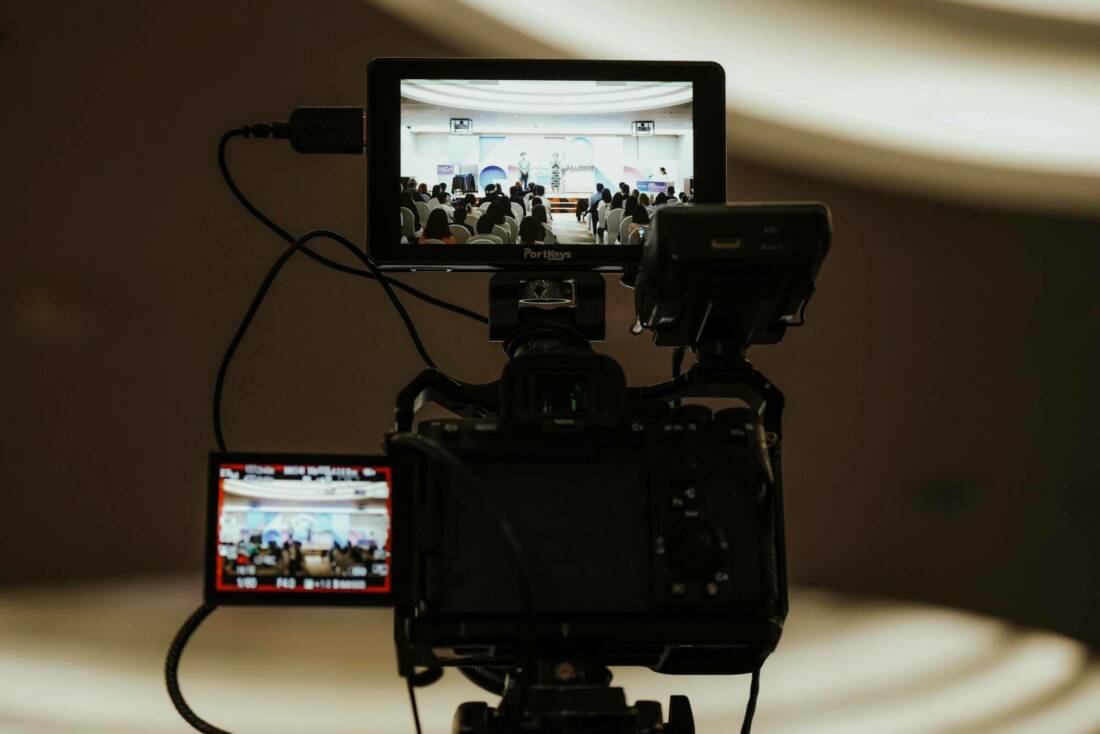UNESCO Aotearoa Youth Leader Chair Travels to Korea for Global Youth Forum
Our Special Advisor Youth, Sabrina Manū, was invited by the Korean National Commission for UNESCO to attend the 2023 UNESCO Global Youth Forum in Seoul in late July.
Global Youth Forum 2023
The purpose of the forum was to commemorate the 70th anniversary of the Korean War Armistice. Seventy young people (both in the Republic of Korea and across their war-allied countries) were selected to take part in the forum and split into eight project groups — education, culture, science and technology, people, media and information literacy, climate, international organisations, and military. Each project group spent 2-3 months virtually engaging in lectures and research to prepare a thematic presentation to deliver to member states at the forum.
Sabrina was a member of the People (Saram) group, where she and eight others created a short visual documentary which explored the stories of Korean War orphans and children. This included a first-hand interview with a 91-year old woman who has been running an orphanage near the 38th parallel since the Korean War era. The intention behind this theme was to emphasis the importance of ownership to the stories of children of the war, to explore the role of young people in sustainable peace-building, and to encourage intergenerational learning and action.

Sabrina’s project group consisted of young people from the Republic of Korea, Türkiye, Belgium, Canada, India and Aotearoa New Zealand. They were provided support and guidance from a Facilitator as well as academic Advisor, Professor Jamie Jungmin Yoo - assistant professor at the College of Liberal Arts, Yonsei University in the Republic of Korea.
“My favourite thing about these experiences is always the people. It’s the conversations outside of the conference room - on the bus, during kai, in the elevator. This is where the beauty of whakawhanaungatanga really comes into play.”

Besides the presentation aspect of the forum, participants also went on field trips to the Demilitarized Zone (DMZ) in Panmunjom, as well as the Osan Jukmiryeong Peace Park and UN Forces First Battle Memorial.
“I’m incredibly grateful to the Korean National Commission for UNESCO for being incredible hosts, for selecting me to join discussions around the impacts of the Korean War and armistice, and to call to action a future of sustainable peace and an absence of war,” said Sabrina
She also extends her thanks to the New Zealand National Commission for UNESCO.
“Meitaki ma’ata to the New Zealand National Commission for UNESCO, who have provided a plethora of domestic and international opportunities for us to engage in deep kōrero and knowledge-sharing, and allowed me to ‘do me’ in yet another space. My capacity is only an extension of the multi-faceted ocean that is our Aotearoa Youth Leaders team, so it’s never a solo effort at play.”

Overall, Sabrina reflects that an ideal word to describe her experience would be ‘stories’.
“The Korean War is also referred to as ‘The Forgotten War’. For generations, peoples’ stories have been silenced and lost in the realities of day-to-day survival. Engaging in this forum has been an act of exchanging stories and critical thinking with young people, many who are living in the generational traumas of the war. Visiting war sites has been an act of briefly stepping into the stories of war victims - soldiers, families, comfort women, children. Developing our project is an act of keeping these stories alive, but more importantly, reminding ourselves of the incredible implications of war and our responsibility to both act and maintain hope for the future.”

